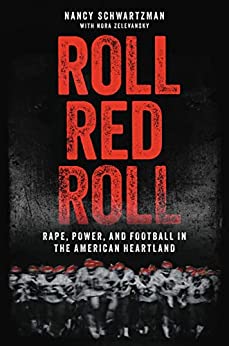More on this book
Kindle Notes & Highlights
Read between
August 15 - August 19, 2022
What motivated these boys to behave as they did and to believe there would be no consequences? How did the dynamics of football contribute to rape culture? The high school athletes and their friends were so sure they were untouchable that they’d posted photos and videos of the actual act. Their parents defended them. Was it football that made them feel so entitled?
The rule of thumb when it comes to rape is that higher numbers (meaning instances of reported assault) actually indicate that a community feels safe reporting and victims feel safe coming forward. Thus, higher numbers can be seen as a positive sign about the environment. Steubenville averaged about four reported rapes a year from 2010 to 2015, in the years before the reporting included male victims and non-forcible rape. With numbers of reports so low, it can be implied that speaking up was frowned upon. It was as if the complaint was the problem, not the violence.
It started with the way women and girls were defined in the culture, the expectations for their futures, and their socialization from childhood. What does it teach girls about their value as women when we behave as if finding a husband, to protect and provide, is the ultimate goal? Who does that endow with power? What does it teach when we prize young women’s physical appearance above all else or model “loyalty” to our boys and men without question, even to our own detriment? What does it teach when we make football—an activity that inherently excludes girls and women on every level except as
...more
But the FBI was coming—and Lostutter would face more severe repercussions for his alleged hacking than did the football players he had outed in Steubenville.
It’s not that rape culture hadn’t existed in the old days; it was that people had the good sense to keep it behind closed doors—and there was no social media or cell phone cameras to document it.
“Because that’s just how it is in Steubenville. Cronyism, nepotism… It has been that way for a very long time… Lots of hate for ‘outsiders,’ but honestly without the outrage of outsiders, would we even know about Steubenville?
I feel he’s earned a second chance. We don’t deal in death sentences for juvenile activity. I’ve thought about it hard and I’m going with that decision.” For Coach Reno, exclusion from football was tantamount to capital punishment.
Mariame Kaba wrote, “Of course, a system that never addresses the why behind a harm never actually contains the harm itself. Cages confine people, not the conditions that facilitated their harms or the mentalities that perpetuate violence.” In other words, all the prison terms in the world are useless if we never investigate the underlying causes of the problem and try to change them. Cycles continue.
Coach Reno was the embodiment of the way rape culture hides. It was about entrenched patterns of behavior in which people might not even realize they were complicit. It was about the male-dominated culture, the patriarchy, the way girls were excluded except as cheerleaders in tight, skimpy outfits. It was about a desire to keep things the same, despite the fact that not everyone was getting their share. Coach was in a position to effect positive change in a deeper sense, beyond the football field, but he wasn’t equipped for that role, and maybe out of willful ignorance didn’t understand that
...more
“An eighteen-thousand-person town and a ten-thousand-seat stadium, for fourteen- to eighteen-year-olds, is such a weight on their shoulders,” said Dave Zirin. “It creates a culture where young boys are exalted and put on a pedestal and, in a healthy society, they wouldn’t be. Same for college athletes, treated like half gods, half chattel. They’ve historically had no collective bargaining rights, no contracts renewed once a year, no long-term healthcare. And, really, the only form of payment is idolatry. I would argue that, culturally and psychologically, it opens the door to seeing women as
...more
Sexual assault, gender bias, and inequity remain difficult to talk about because they implicate all of us and impact us all with trauma. We are survivors, we know survivors, or we know perpetrators, who are also sometimes survivors. It’s upsetting and complex, and is shrouded in shame.
The larger questions are not only why did it take so long, but why did so many people enable the perpetration?


